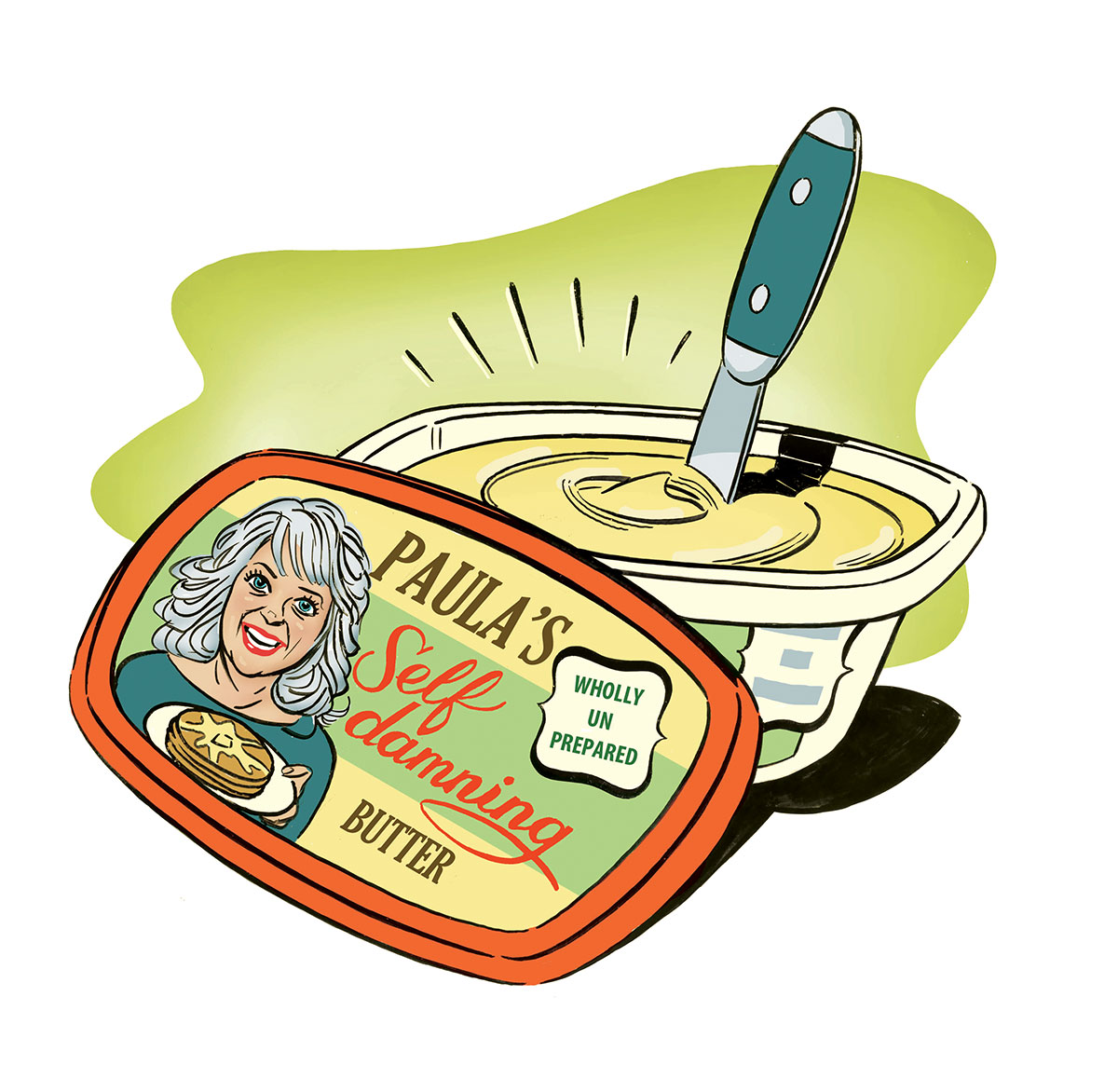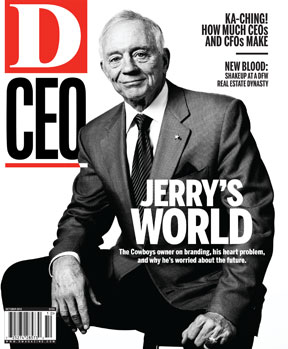Take one outspoken personality presiding over her own media and culinary empire. Add a pesky lawsuit by a disgruntled ex-employee. Allow time to simmer, under the cross-examination of a videotaped deposition. When the mix boils over with damaging admissions of racial insensitivity, liberally sprinkle the results across media outlets nationwide. Such was the recipe for the meltdown of the Southern-style cooking empire of Paula Deen in the wake of admissions that she had used racial slurs.
The situation came to light in a lawsuit brought by former employee Lisa Jackson in Georgia federal court against Deen, her company Paula Deen Enterprises, and her brother, Earl “Bubba” Hiers, over alleged sexual harassment and racial discrimination at Deen’s Savannah restaurants, Uncle Bubba’s Oyster House and The Lady and Sons. As word spread of Deen’s use of the racial epithets and apparent tolerance of her brother’s alleged racism and sexism, the folksy Southern chef’s brand became radioactive. Scripps Networks Interactive Inc.’s Food Network, which once aired three different shows featuring Deen, ended its 11-year relationship with the celebrity chef. Caesars Entertainment Corp., which operates Deen-branded restaurants in four of its casinos, also severed its ties to Deen.
Retailers like Wal-Mart, Target, J.C. Penney, Sears, and Walgreens, as well as home shopping network QVC—all of which carried Deen’s popular cookware and kitchenware product lines—likewise announced they were ending their relationship with Deen. Danish pharmaceutical giant Novo Nordisk, which used Deen as a pitchwoman for its diabetes drug, announced that it had “mutually agreed” with Deen to “suspend our patient education activities for now.” Smithfield Foods, which carried a line of Paula Deen-branded hams, dropped the embattled chef as well. Even her publisher, Ballantine Books, which saw sales of Deen’s cookbooks spike at the height of the scandal, canceled the multi-book deal it announced only last year with the woman who inspired new interest in butter-drenched homestyle cooking.
All told, Deen’s admission about using the n-word has cost a pretty penny for the woman who Forbes says made $17 million in 2012 alone. (The Food Network deal reportedly accounted for $2.5 million annually, while the Novo Nordisk endorsement paid Deen at least $2 million a year)
What specifically led to the implosion of Deen’s brand, how could it have been prevented or at least minimized, and what lessons can c-level executives learn from the scandal?
It all began with Deen’s deposition in a case that centered on her brother, the “Bubba” of Uncle Bubba’s Oyster House, and his alleged misconduct while at the restaurant’s helm. The lawsuit paints Hiers as a crude person, prone to showing up at work drunk, using racial slurs, and viewing pornography at work and showing it to female employees. Deen’s “blood is thicker than water” approach to such misconduct, and apparent tolerance of it, led to the deposition’s most damning testimony from the 66-year-old chef-turned-entrepreneur. Deen testified that she never asked her brother about the truth of the allegations made against him, and that she distrusted the results of a consulting firm’s investigation that validated the complaints, saying that the firm had been “deceived” by people with “evil motives” (like Lisa Jackson, the plaintiff in the ensuing lawsuit, which was recently settled out of court). In the deposition, Deen gave the impression of excusing the porn viewing and crude sexual humor in the workplace, saying “It’s just men being men” and “I can imagine several men in my life that would have said something similar.”
But what ignited the firestorm of controversy was Deen’s admission to having used the n-word in the past, even as she acknowledged “that’s just not a word that we use as time has gone on. Things have changed since the ’60s in the South.” Deen tried unsuccessfully to distinguish between use of the n-word “in a mean way” in contrast to more benign ways, such as humor or what “black people say to each other.” Deen was reluctant to condemn the use of such slurs in jokes, saying “Most jokes are about Jewish people, rednecks, black folks. … They usually target, though, a group. Gays or straights, black, redneck, you know, I just don’t know—I just don’t know what to say. I can’t, myself, determine what offends another person.” In addition to the controversy brought on by the testimony itself were subsequent revelations by current and former Deen employees about Deen’s plans for an antebellum plantation-style wedding, and others being asked to wear “Aunt Jemima”-style clothing at one of Deen’s restaurants.
FAILING TO PREPARE
Although some media accounts have referred to Deen being “forced to open up” during the deposition about the use of racial slurs, reading the testimony itself reveals that many of Deen’s damaging admissions came not while responding to a specific question, but while volunteering information and going off on rambling tangents instead. Was it a case of poor representation? Deen’s lawyer during the deposition, William P. Franklin Jr. of Savannah’s Oliver Maner LLP, is a well-respected attorney, but one whose practice focuses more on medical malpractice defense than on employment litigation. In the deposition’s ugly aftermath, Deen and her businesses made a very public change of counsel, switching to the national firm Morgan Lewis & Bockius.
Having a lawyer with the necessary background and experience in a specialized area of law is certainly one lesson that can be drawn from the Deen debacle. But an even bigger takeaway is the need for preparation for a deposition like this—and not necessarily just with the lawyers. Dallas media relations expert David Margulies of Margulies Communications Group says that the questions Deen was asked were “predictable, considering the nature of the case. She could have been prepared to answer [them].” A key part, Margulies says, is not just anticipating particular questions, but making sure that “the person being deposed fully understands the purpose of a deposition. It is not the time to argue your case.”
Longtime jury consultant Alison Bennett of Dallas’ Bloom Strategic Consulting agrees. “I take time to address common misperceptions about depositions, including the executive’s true role at the deposition. Executives who believe it is their responsibility to ‘win the case’ often try to advocate and explain during answers, so this misperception needs to be addressed up front. C-level executives are usually highly competitive. They need to understand they cannot win a deposition, only lose it.” Too much advocating and explaining, says Bennett, “leads to trouble, as it did at Paula Deen’s deposition.”
Bennett goes over key communication strategies with her clients, including “how to recognize questions that are traps, and how to answer questions with precision, one question at a time”—an approach that Bennett explains may sound deceptively simple, but which actually “runs contrary to the way we communicate in everyday life.” Preparation like this, according to Bennett, enables the truth to be communicated “without creating a career-ending sound bite in the process. In Deen’s deposition, some of the most difficult questions originated after she gave a long, overreaching response to another question.”
Preparation for a deposition involves many elements beyond grasping the purpose of the deposition, anticipating what might be asked, and understanding how best to respond. For example, Bennett points out, getting Deen’s view of the allegations, “including her personal definition and understanding of what constitutes racial discrimination or sexual harassment, could have yielded critical, strategy-changing information before the deposition.” Getting a sense of where Deen stood on the key issues, in other words, could have given her lawyers options for her preparation, including putting greater emphasis on cultural sensitivities. Prominent employment lawyer Michael Maslanka, managing partner for the Dallas office of national employment firm Constangy Brooks & Smith LLP, cautions that “you can’t change the facts, but you can change the story. Context matters and it matters a lot. But you can only be ready to do so if you know the bad stuff up front.”
If scandalous admissions do come out, the issue of damage control becomes paramount. “I would have recommended Paula Deen immediately issue a news release acknowledging the question and her answer, offering a sincere and heartfelt apology,” says David Margulies. By releasing negative news first, Margulies explains, “you have a better opportunity to control the message.”
Deen’s early reaction to the widening scandal included backing out of an interview on the Today show, and posting a professionally produced apology on YouTube before pulling it and replacing it with a self-produced plea for forgiveness in which she again apologized.
As the devastating fallout from Deen’s deposition continues, valuable lessons emerge for C-suite denizens facing depositions themselves. Developing effective, truthful answers requires preparation, and frequently that preparation involves not only legal counsel but communications specialists as well. In the digital age, when embarrassing revelations gain a life of their own and go viral on YouTube and brands can be damaged or even destroyed with the speed of a search engine, it’s more important than ever to align truthful answers with overall legal strategy and avoid being blindsided by an unexpected deposition question.






